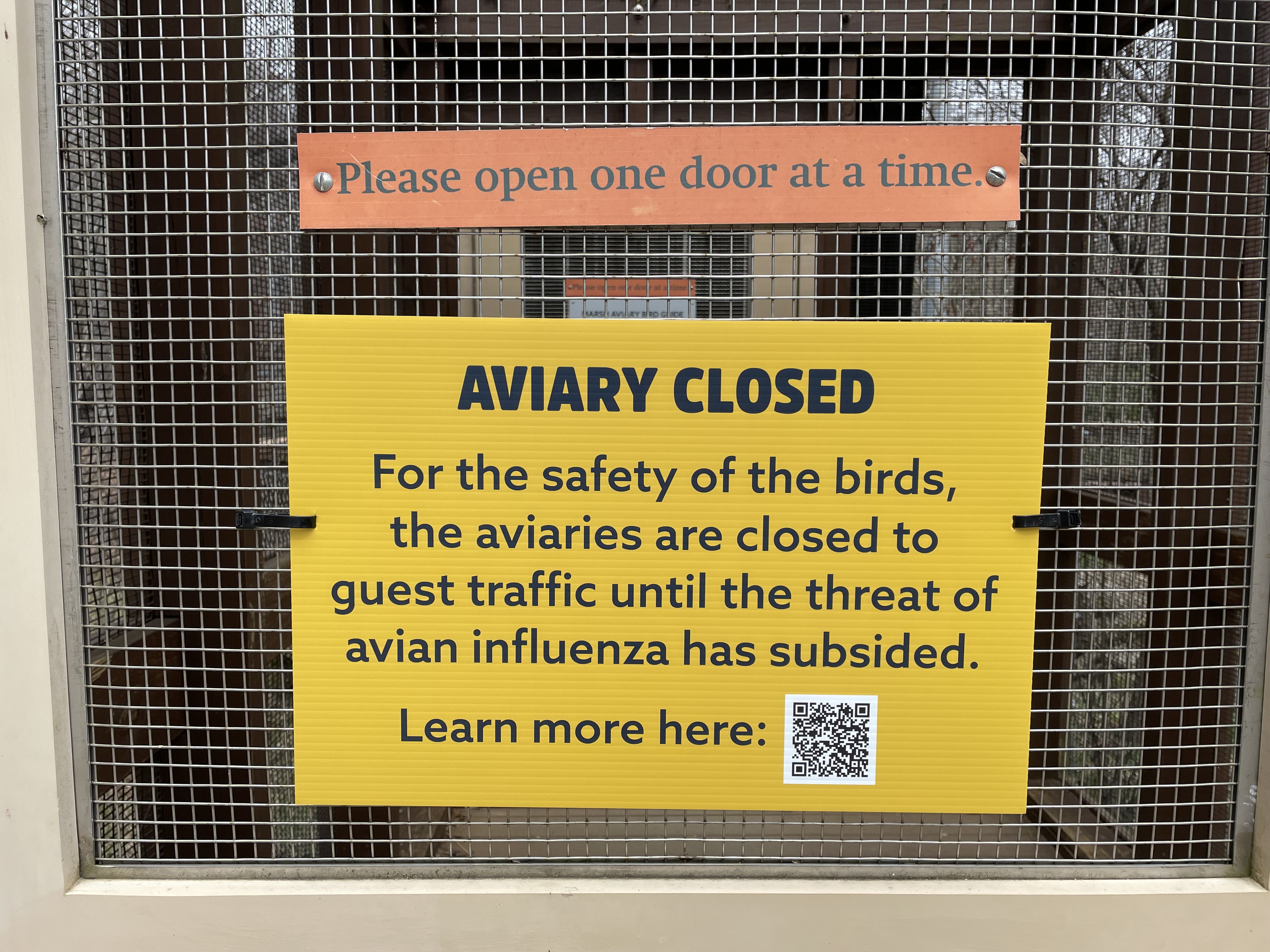Maryland Zoo Closes Aviaries, Moves Birds Indoors To Head Off Avian Flu
BALTIMORE (WJZ) -- Stop by the Maryland Zoo sometime soon and you'll likely notice a conspicuous change: some of the birds are missing from their habitats.
The zoo announced on Tuesday it has temporarily closed its aviaries and staff have brought a number of bird species behind the scenes, preventative steps the zoo is taking to protect its feathered denizens from the avian flu.
"We've taken these steps out of an abundance of care to limit contact between migrating wild birds, which can spread avian flu, and our collection of rare and endangered birds," Maryland Zoo President and CEO Kirby Fowler said.
While none of the zoo's birds have shown symptoms of avian flu, cases of the highly contagious illness have been documented in birds and flocks nationwide, including here in Maryland.
"There are no cases here, but we decided to adopt some precautions," Fowler said.
Additionally, the zoo is limiting the number of staff who have direct contact with its bird population, and they' have adopted special handling and sanitation measures in response to the issue.

These precautionary measures are part of the zoo's multi-tiered response to avian flu, a plan of action that has been vetted by the U.S. Department of Agriculture and Maryland Department of Natural Resources, among other agencies.
"Moving birds off-habitat is not unique to the Maryland Zoo," Fowler said. "Colleagues from across the country are taking similar measures."
Avian flu is commonly spread by wild birds through their saliva, mucous and feces, according to the Centers for Disease Control and Prevention.
While some bird species might not get sick as a result of these naturally occurring viruses, the CDC states, they can cause serious illness and death when it comes to other species.
Even though infections among people are rare, the agency says, it can happen when we come into contact with airborne droplets or particles of the virus or if we touch a contaminated surface and then touch our faces.
"The good news is, there's never been a human case of this strain of the virus," Fowler said.
So, what does this mean for zoo visitors, such as yourself?
You won't see your favorite penguins or flamingos frolicking in their enclosures, and all birds kept in open-air habitats have been moved indoors.
The other animals at the zoo seem to be in the clear as well as they stretch their legs after a long winter.
"The zoo is open to the public," said Fowler. "It's spring time, the grizzly bears are awakening from their hibernation, the African animals are out as well, so there's plenty to do here still, but we do have to take the precautions because animal welfare is our No. 1 concern."



